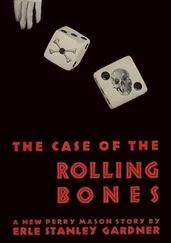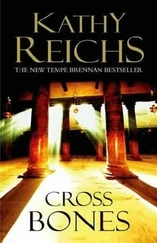Davidson’s crusade is the more remarkable because he is not based in London. He is rector of the Norfolk parish of Stiffkey and Morston where he lives with his Irish wife, Moyra, and their five children, Sheilagh, Nugent, Patricia, Arnold and Pamela. He teaches religious instruction at the local school, recites poetry and presides over amateur dramatic productions. ‘I used to do a bit of acting, in my student days and after,’ he recalls with a smile, ‘and I fear there’s still a bit of the ham about me!’ He is a frequent visitor to the theatres of London’s West End. While barely past his school examinations, Davidson set up an organisation to help child newspaper sellers – always a prey to bullying and exploitation – acquire a basic education. After gaining a degree at Oxford University, he helped to found the Young Lads’ Apprenticeship Fund, looking to provide an artisanal career for otherwise unemployable youths. ‘It is the most worthwhile work imaginable,’ he told me, ‘attaching these lost boys to employers and helping them become future plumbers, bookbinders and carpenters …’
He is also the founder of the Runaway Boys’ Retreat, where street urchins, on the run from difficult domestic circumstances, are fed and tended by older boys and given a basic education. Davidson has also become known to Londoners for his work with streetwalkers, finding them work and decent dwellings, ‘helping them’, as he puts it, ‘emerge from the crepuscular alleys of sins, the dim corridors of corruption and return to the stony but sure pathway to the Light. These women are often scarcely more than children, young girls preyed upon by men no better than the slave owners of yore. It is my gift sometimes to discover them before they have strayed, and to divert the course of their lives from Perdition. To the fallen, I can offer help and succour. I will go on doing so while there is breath in my body, and friends able to assist in this most necessary and demanding work. I owe it to the girls.’
When we parted company, he was on his way to the Kardomah restaurant in Holborn, to meet another prospective employer of the poor unfortunates to whom he represents a kind of earthly Saviour. Motivated by simple Christian good-heartedness, Harold Davidson is too modest of his achievements to accept such an appellation; but it is deserved nonetheless.
Journals of Harold Davidson
London 7 July 1930
As I was passing the Lyons Corner House tea room in the Strand today I saw, through the window, a remarkable sight. A young girl, evidently a waitress, wearing a thin raincoat and no hat, was sitting on a chair the wrong way round. Her knees were spread wide around the chair’s backrest, her arms folded along the top. In this posture, she was talking to the lady by the till, who seemed to find nothing unusual in her friend’s wanton arrangement of limbs.
I walked in. My usual table to the rear of the tea room was occupied, and I was forced to sit by the window. I dug into my Stationery and Publications Pockets, and set to work making notes on the findings of the Bishops’ Conference in Liverpool, until I saw the young girl on the chair cease her conversation, and I felt able to intervene.
‘Good evening, my dear,’ I said, giving a grave bow. ‘Am in the presence of Miss Marlene Dietrich?’
‘You what?’ said the girl, blankly. ‘Who’s that? Who’re you?’
‘I see I am mistaken,’ (I smote my brow theatrically), ‘but surely you must be aware of Miss Dietrich, the German actress. Why, you resemble her so closely, I could have sworn it was she sitting on this chair.’
‘You mean I look like her?’
‘It is not just the look, my dear. It is the pose. You must have seen Miss Dietrich’s new film, The Blue Angel , in which she plays a nightclub entertainer, who sits, upon the stage, in precisely the same attitude in which you are sitting now?’
‘No I haven’t. I can’t afford to go to the flicks.’
‘Dear girl, are you destitute? Have you no work to bring you a living wage?’
‘I work here,’ she said, coolly. ‘Only, I’ve just come off duty and now I’m going home.’
‘How fortunate. And do you find the work in this tea room congenial?’
‘What you mean, congealing?’
‘Congenial, my dear, do you find the work pleasant?’
‘Yeah, it’s all right. It’s nice when everyone’s friendly. But we get some right tough characters. The other day, this bloke, he comes in throwing his weight around, he looks at me and goes, “Oi, you! Get me some hot chocolate!” like he’s ordering some squaddie around.’
‘And did you retaliate?’
‘We’re not supposed to say nothing, in case they turn nasty. So I just got his drink and brought it over. Yvonne, my friend, she reckoned I should have upended it into his lap.’ She beamed wickedly at the prospect.
‘I hope you are not abused by gentlemen on a regular basis?’
‘What? No chance. Miss Tewkesbury here, she doesn’t take no cheek from people who’re rude.’
She was a sweet-faced young thing, not a beauty but a healthy, clean-skinned innocent girl, nervous of men. Yet, given a moment’s rest from her labours, she falls into the wayward, legs-apart posture of Lola in The Blue Angel , like the most shameless poule de luxe! Something must be working upon her; some malign influence has her in its grip. I have an antenna for when a girl is going to the bad – or, if not yet going, then disposed in time to slide towards corruption.
Her parents were in Evershot, she said, a village near Yeovil, in Dorset. They had (thoughtlessly, I feel) allowed her to leave school and travel to London with her older sister, to seek employment. The girls live in Camberwell, off the Dog Kennel Hill, and the sister, Delia, has a ‘young man’ who takes her cycling at weekends. She herself (Sandra) has no young man, she says, though she is all of seventeen. Some of the gentlemen who came in for tea made rough jokes about taking her ‘up the town’ one night, but they never (she says) mean it and she wouldn’t wish to. I asked how she spent her evenings. At the Camberwell room, it seems, reading and listening to the radio, although sometimes she and Delia go to the nearby park and drink cider with her gentleman friend and his associates. ‘It reminds us,’ she said, ‘of home.’ My godfathers. I know a girl in imminent trouble when I hear one. But one small light gleamed out from her blank revelation of a blank life. Every so often she goes to the Quakers Hall on Camberwell Church Road, to watch girls from the local school rehearsing their end-of-term drama.
The dear child. So bleakly comforted by so little! Impetuously, I leaned forward.
‘Would you do me the honour of accompanying me to the theatre?’ I asked. ‘I am fortunate to have two tickets to The Young Idea by Mr Coward at the Hippodrome this Friday, and I would like you to come.’
‘Well, I dunno,’ she said, untwining her legs from the back-to-front chair, ‘I don’t know you. You might be a murderer for all I know, mightn’t you?’
I gave a light laugh. ‘I am a clergyman, my dear, and I assure you that murder is the last thing on my mind. To speak plainly, I feel you may have a considerable future as an actress. Please do not smile. I am perfectly serious. Before I took to the cloth, I was a professional actor in London, in Kent, Surrey and Hampshire, and I know talent when I see it. You have no business waiting at tables where boorish men speak to you roughly. There is a world out there of achievement, of glamour and fame, where a girl like you will not have to fetch and carry for a pittance. Perhaps on Friday you will let me introduce it to you?’
Читать дальше












